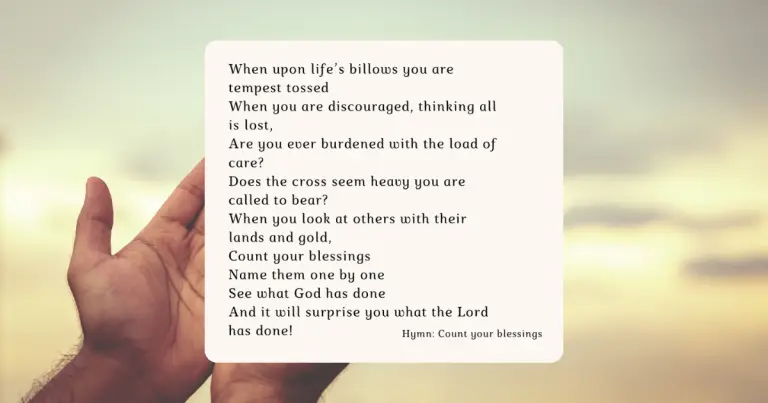
First, there are those who, like the Israelites, quickly forget God when they find themselves enjoying His promises and living in abundance.
Then, there are those still waiting for the fulfilment of a promise, like many of us today. People like David, Esther, Daniel, Job, and Paul experienced seasons where they had to trust God while waiting. Despite their struggles, they didn’t complain or grumble against Him. Instead, they held on in trust, faith, and gratitude.
You could say these individuals were in valleys. To me, valleys represent unique challenges for different people. But one thing is certain: valleys are always unpleasant.
Did you know that many of Paul’s letters were written while he was in chains? Yet, despite his difficult circumstances, Paul maintained a heart of gratitude. He thanked God for the very chains he was in, for the situations he faced, and for the people he ministered to. He saw his valleys as tests of faith and counted them as worthy suffering for the gospel.
Paul expressed gratitude for the spiritual growth of the recipients of his letters, for their reputation as faithful Christians, and for all that God had accomplished through Jesus Christ in their lives. He also made it a habit to appreciate those who supported and cared for him with resources and prayers during various seasons.
Complaining vs. Faith
Complaining isn’t done in faith. Scripture tells us that “whatever is not from faith is sin”. Complaints stifle the work of God and open the door for the enemy to operate. It is like shutting the door to God’s promises while asking Him for help. 1 Corinthians 10:10-11 warns us, “Do not complain, as some of them did, and were destroyed by the destroyer. These things happened to them as examples, and were written for our instruction, for whom the ends of the ages have come.”
Examples of People Who Maintained a Posture of Gratitude in the Face of Intense Adversity
Paul and Silas: While imprisoned, they sang praises to God, and their worship led to a miraculous deliverance (Acts 16:25–26).
Jehoshaphat: This king demonstrated that praise can be as powerful as prayer in overcoming adversity. Praise has the ability to lift depression, realign the heart, and defeat the enemy. Jehoshaphat exemplified spiritual warfare through thanksgiving and praise. When faced with a vast army, he led his people in singing, “Give thanks to the Lord, for His love endures forever!” God responded by defeating their enemies without them lifting a sword (2 Chronicles 20:21–22).
It is easier to stay focused on God while singing than when merely speaking. Sound carries incredible power, so much so that when a depressive spirit tormented King Saul, David’s music caused the oppressive spirit to leave temporarily (1 Samuel 16:23).
Job: Despite immense suffering, Job maintained a heart of praise. He declared, “The Lord gave, and the Lord has taken away; blessed be the name of the Lord” (Job 1:21).
The Spiritual Power of Praise and Thanksgiving
Gratitude and praise are not merely feelings or actions we engage in when we feel like it; they are powerful spiritual weapons.
Many people assume that praise is something to offer only after receiving what they’ve prayed for, but that’s not true. The enemy often works to distract us from focusing on praise and thanksgiving while we’re still waiting, knowing that these may be the very keys to unlocking our breakthrough.
Consider Paul and Silas, locked in the deepest part of a prison—a seemingly hopeless situation. Most people would have been pleading with God for rescue or questioning why they were facing such a trial. Instead, Paul and Silas prayed and sang hymns to God. The result? All the prison doors flew open, and everyone’s chains came loose (Acts 16:26). Every door was opened, and every chain was broken by the power of praise and thanksgiving to God!
Similarly, many of King David’s most profound songs and psalms were written in the midst of pain, adversity, and unmet expectations. A common theme in the book of Psalms is the pattern David often followed: he worshipped, praised, and magnified God and THEN presented his requests.
A classic example is Psalm 9, where the psalmist begins by giving thanks to God, magnifying Him, and appreciating all He has done, the times He came through for him. Only THEN does he present his petitions.
Take some time to read Psalm 9; it will truly bless you!
Prayer asks, but Praise Receives
Praise accepts the answer by faith, thanking God for the answer even before it becomes visible to the natural eye.
After you’ve prayed and believed God for the answer according to His Word, it’s time to remain in faith by praising Him. Repeatedly praying about the same request as if God hasn’t heard you can actually shift you from faith into unbelief. Stay in faith by praising, knowing He has already heard and is working on your behalf.
Instead of remaining fixated on what you have yet to see, why not take a moment to count your blessings? If you can get around to naming them one by one, you just might realise how faithful God has been and even discover your current request pales in comparison to His faithfulness over the years.
A Vigil of Praise: Embracing the Book of Psalms in Worship
I suggest you try holding a vigil of praise and thanksgiving. If you’re like me and can’t sing much, or if you can’t sing to save your life, that’s exactly why the Psalms are there. Make the best use of the Book of Psalms, it exists to simplify our worship journey. Grab your Bible and worship God with the Psalms of praise. You can start with Psalm 150 and work your way backwards.
Please try this and send me feedback! I would love to hear from you @hephzibahsmanor.ng@gmail.com.






